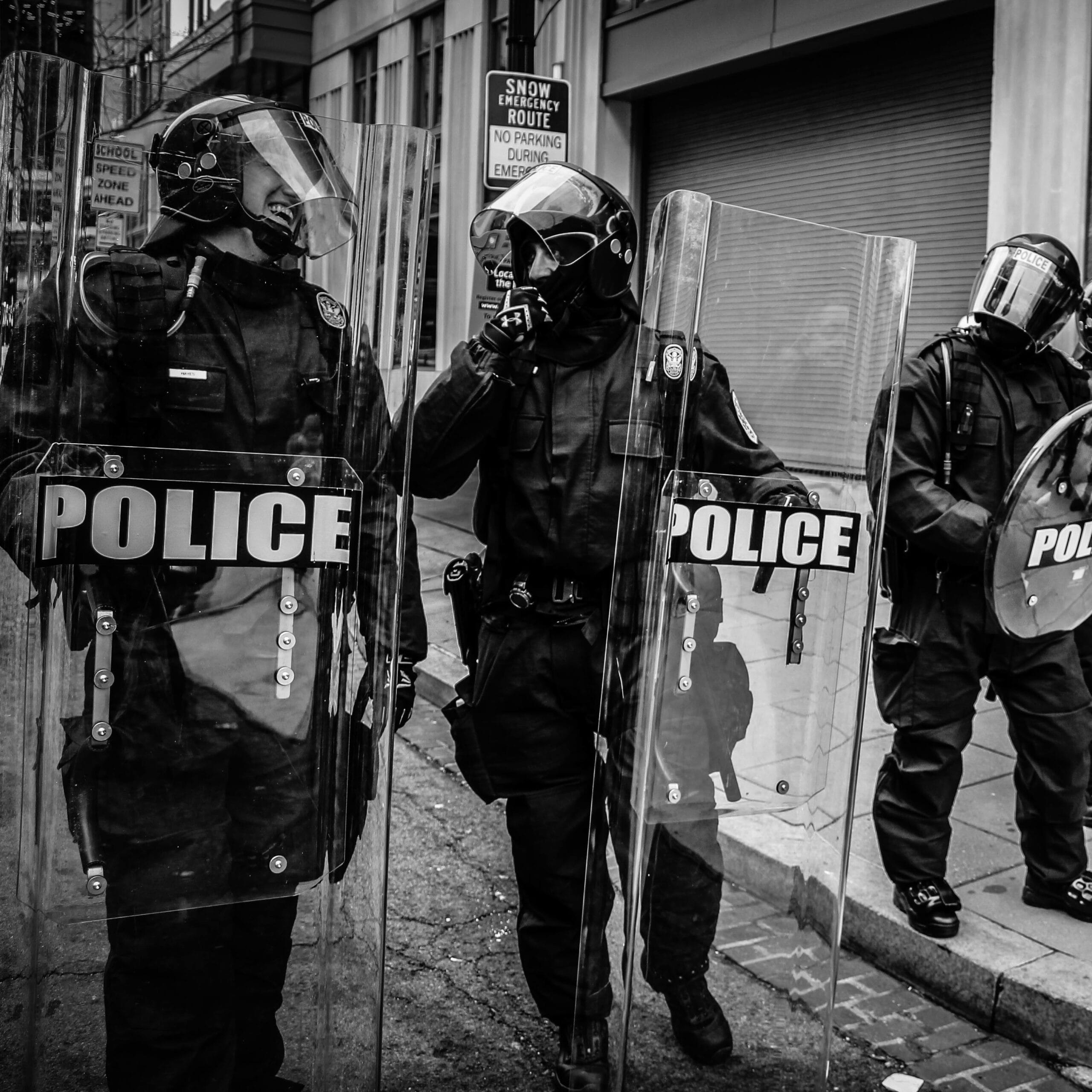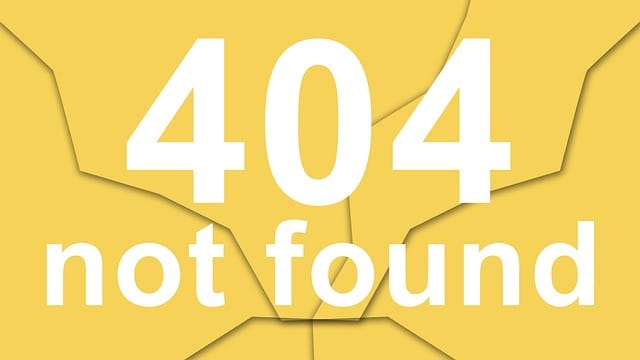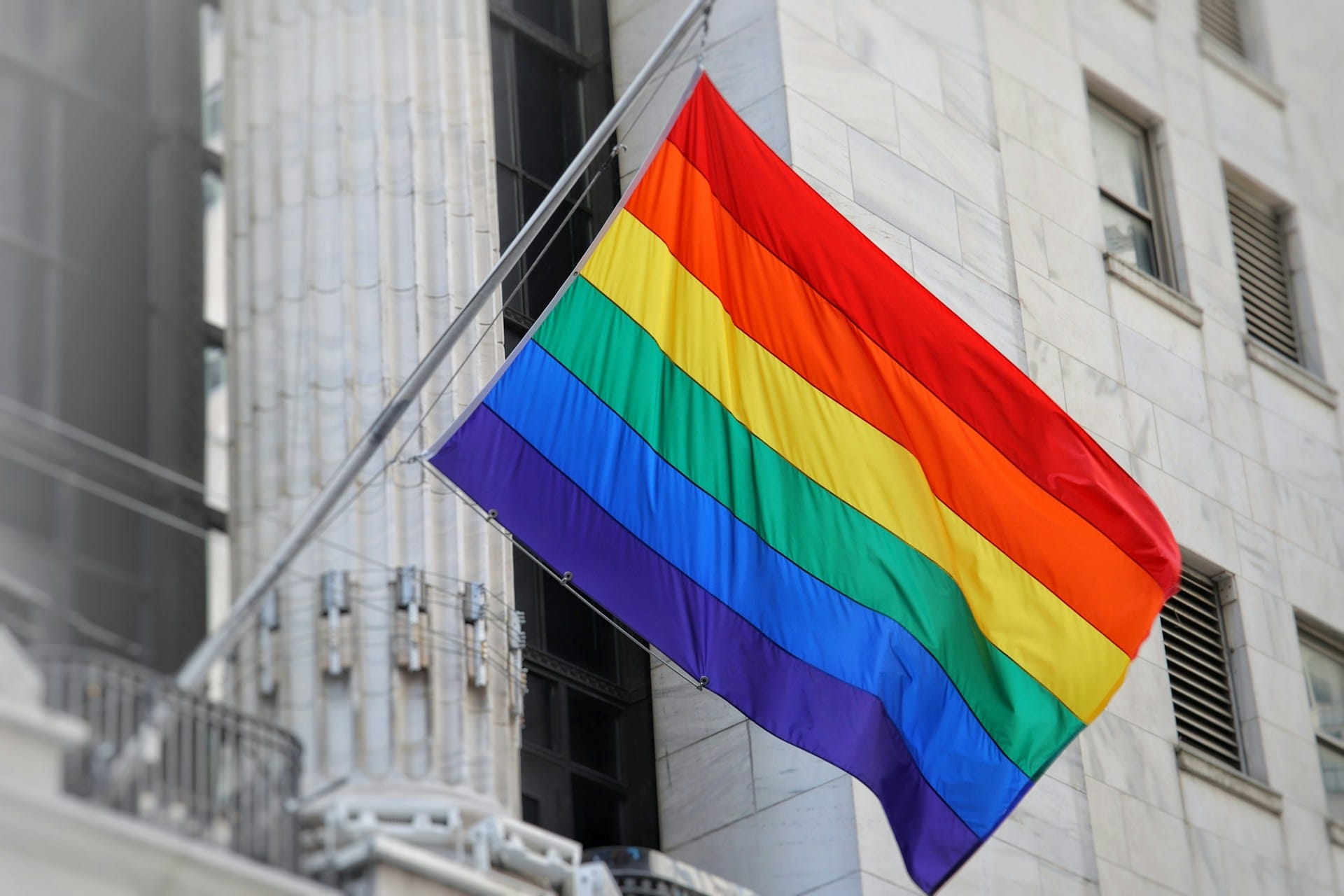[00:00:00] Speaker A: Foreign Defiant, the podcast that doesn't just ask questions, but demands answers. I'm Niels, and with me, as always, are Bobby Socks and Bill.
[00:00:16] Speaker B: Today we're talking about a line that's getting thinner and thinner, blurring the distinction between those who protect and serve and something far more sinister.
We're talking about the thin blue line.
Not just a saying, but the increasingly militarized presence of police in our communities.
[00:00:33] Speaker C: Undeniably, Bobby, in my lifetime, I've watched that line shift to something that more closely resembles the demilitarized zone, the DMZ in Korea.
And that's got profound implications both for our civil liberties and for the very fabric of American society.
Armored vehicles on Main street and the use of military grade tactics in everyday policing. It feels like we're living in the beginning of a police state rather than a free democracy.
[00:01:12] Speaker A: I tend to agree, Bill. And today we're going to unpack the history of how our police department, originally modeled after civilian forces designed to round up slaves, began adopting the trappings of the military, from the war on drugs to post 911 fear. We'll trace the lineage of this transformation.
[00:01:30] Speaker B: Then we'll dive into the concrete impacts, how this militarization disproportionately affects marginalized communities, escalates tensions, and in some cases makes us less safe, not more.
We're talking about what happens when shoot first and think later becomes the unintended mantra.
[00:01:49] Speaker C: And finally, we won't just highlight the problem.
We'll explore some viable alternatives, strategies that prioritize community building, de escalation and addressing root causes rather than deploying bayonets and grenade launchers in our neighborhoods. Yeah, you heard that right. They actually have those.
[00:02:15] Speaker A: This is critical defiance, and it's time to understand the thin blue line that runs down Main Street.
We've been back for a week and it's been a heck of a week. Like, it's. We're still watching everything going on with the Epstein files. That's some craziness.
Trump just got crushed on South Park. That was magical.
I can't even. Whatever we do, we will never reach that level of shade.
[00:02:40] Speaker B: You want to test me? I could.
I have a good understanding of drag. I can do. Ready?
We've also had a lot of celebrity deaths this week, back to back.
[00:02:53] Speaker A: Weird people dropping like flies. Hulk Hogan, you had. Who else? I know there were less important people. There was Hulk Hogan, American hero, Ozzy Osborne, Satan's hero.
[00:03:04] Speaker B: Osborne was the big one for me. And I don't know, it seems like the world, honestly, it yeah.
[00:03:12] Speaker A: It's funny, they both died. Did they die on the same day or within two days? But yeah, Ozzy seemed to have the huge emotional impact on. And Hulk Hogan seemed to be an afterthought, which kind of tells you something about how you live your life when you go.
[00:03:25] Speaker B: Yeah. And I think the world was also ready for Ozzy to pass in a way, especially with that last performance.
[00:03:30] Speaker A: Poor man was not in good shape.
[00:03:32] Speaker B: But I know his death hit me close to the same level as Bowie's.
[00:03:35] Speaker C: Then there was Chuck Mangione for me because I just happened to be a jazz lover.
[00:03:40] Speaker A: And yeah. So it's. We had a trifecta of laws. So, you know, it was a rough week. We had some other stuff going. We had some personal stuff going on. Bill is still in the throws of getting the. The beautiful vintage horses out of the stable.
[00:03:55] Speaker C: Them horses.
[00:03:57] Speaker A: There are downsides to vintage car ownership.
[00:03:59] Speaker B: I've had some good happenings of temperature control being put back in my domicile.
[00:04:06] Speaker C: So hallelujah.
[00:04:09] Speaker B: Yeah. As we survive this heat wave with.
[00:04:11] Speaker A: A broken down AC system. Right.
[00:04:13] Speaker B: Yeah. The person who has heat problems and temperature sensitivity has just been locked in a hot box.
[00:04:20] Speaker A: Great.
[00:04:21] Speaker B: Yep.
[00:04:21] Speaker C: You got it back in the nick of time because today is. The last three or four days have been moderate, almost enjoyable outside. Today is flipping brutal out there.
[00:04:32] Speaker A: Yeah.
Last I looked and where I am, it was well over 90.
So. Yeah. What else is going on? I. I've been watching the news. I have been watching the right wingers call for the denaturalization and deportation of Zaran Mandani in New York because he's brown. Therefore he must be a jihadist who is a communist who's trying to take over the prettiest city on earth. And Trump needs to do something about it and make New York hot again. I shit you not. This is the rhetoric.
I.
I'm in New York. Go yourself.
[00:05:08] Speaker B: Okay.
[00:05:08] Speaker A: When you have an opinion about a mayor in a city that you're not from, in a place that you've never been, you're a.
I'm from New York. Kiss off.
[00:05:17] Speaker C: Bill.
I'm sorry.
This is just part of Trump's strategy.
Distract.
Yeah, Anything but. Epstein, let's denaturalize Mamdani.
Let's strip the citizenship from Rosie o'. Donnell. Let's prosecute Obama for treason. The man doesn't. He's nonstop.
He's a one man clown car.
[00:05:44] Speaker A: Yeah, pretty much.
Isn't that what Jon Stewart used to call him? Clown shoes. Wasn't it?
[00:05:50] Speaker C: Clown shoes?
[00:05:51] Speaker A: Yes. Fuck Face. Fun Clown Shoes was how Jon Stewart referred to him when he was still a Daily show host.
Because he made a huge thing out of Jon Stewart not using his real Jewish name.
[00:06:03] Speaker C: Did he?
[00:06:04] Speaker A: Yes. And Jon Stewart to come back was. I'm really disappointed that a man who doesn't use his real name, Fuck Face Von Clown Shoes, heir to the Von Clown Shoes throne, would have that to say about me. So I thought it was great. It was hysterical. It was like one of those classic bits.
[00:06:21] Speaker B: Everything he says just is more and more outlandish and more of a. Just let me show my mental decline to the world while I try to pretend my name isn't on the Epstein files.
[00:06:35] Speaker C: He is just flailing for anything.
The old strategy of throwing at the wall to see what sticks. And unfortunately for him, fortunately for us, nothing is sticking.
[00:06:49] Speaker A: Yeah.
[00:06:50] Speaker B: Yeah. And he really want answers. He's scrambling to use the strategy of both distraction and flooding the system, and it's just coming out as scatterbrained threats.
[00:07:04] Speaker A: When you flood the zone too many times with too little info, what you wind up doing is looking like an idiot. And that's where it's going. Because his own people want answers.
[00:07:14] Speaker B: Yeah.
[00:07:15] Speaker C: And the problem here for him is that he promised his people those answers.
And this has been one of their big, motivating, driving forces for what, the last.
[00:07:27] Speaker A: God years?
[00:07:28] Speaker C: Six flipping years. Yeah.
[00:07:30] Speaker B: If anything, everything he's doing now is starting to slowly snap some MAGA cultists out of it when they're saying that they're not getting their answers or their kids. Medicaid was just taken away, but it was just called by a different name in their state.
[00:07:48] Speaker C: Yeah.
[00:07:48] Speaker A: They all want to say that this is 3D chess. This was the plan he had from the beginning because there's larger issues. And I'm like, okay, give me a break, man.
Give me a break. He's not that smart. He's not smart enough for 2 d. Ch.
[00:08:02] Speaker C: They used to call this damage control back in the early 70s when Nixon was trying to squeal out of Watergate. Yeah.
[00:08:08] Speaker A: Now it's just damage in control.
Yeah.
[00:08:12] Speaker B: Yeah. That's a great way to fucking put it, Nils.
So to break us into the bigger conversation we're having today, speaking of damage and control.
[00:08:23] Speaker A: Right.
[00:08:23] Speaker B: Yeah.
I wanted to break down the real meaning of acab.
Firstly, its original meaning is not all cops are bad, it's all cops are bastards.
Which has a very different meaning than just saying they're all bad.
And generally, what ACAB means is the police force is A bastardized system where the protect and serve. The protect part of protect and serve has been stripped away.
[00:09:02] Speaker A: Yeah. The community service portion of the job seems to have gotten smaller and smaller over time.
And you can argue that the community service portion of the job was only there to sell the need for police in the first place.
[00:09:16] Speaker B: Yes.
[00:09:16] Speaker A: Because when you get into the history of policing in this country, it really is the truth.
Whether you love it or you hate it. That part of the job has been shrinking for decades now. Yeah, it's pretty much gone. Which leaves what in its place?
[00:09:32] Speaker B: Militarized police force who's trained to shoot.
[00:09:35] Speaker A: Which is what we're going to talk about today.
[00:09:37] Speaker B: And I also want to add with talking about ACAB a little bit, because ACAB and defund the police tend to go hand in hand sometimes. Defunding the police doesn't mean taking away all their money and getting rid of the police force entirely. It means reallocating money into different types of trainings for police, whether it's mental health training, adding social workers to the force to better handle situations where you don't need people with guns and shields coming in and escalating a problem from.
[00:10:09] Speaker A: De escalation to diagnosis. You've got a whole range of options that can be used that modern policing just overlooks.
[00:10:18] Speaker B: Yeah. And defunding the police is an attempt to fix the bastardization that has happened to the police force across the country to try to put the protect back in protect and serve. And also maybe try to make it protect and serve for everyone, not just the wealthy and white.
[00:10:42] Speaker A: Now there's a thing, because when you talk about the history of policing in this country, where it really begins, where it originates, where it comes from, is hunting down slaves that escaped slave patrols. So policing in this country was designed from its inception to serve the well off white man.
[00:11:00] Speaker B: Yeah.
[00:11:01] Speaker A: And one can say that's never changed.
[00:11:04] Speaker C: Yeah.
[00:11:05] Speaker B: The police force also continued to evolve to target mainly black and brown people. After slavery was abolished, all these newly freed slaves were mostly illiterate since they weren't allowed to read or write while they were still under slavery.
And then we started making laws against things like jaywalking. And the portion of the population, the black and brown population that could not read was then scooped up by the police for breaking laws that they didn't know they were breaking and put into chain gangs. And then we have slavery with extra steps. The 13th Amendment states that just to boil it down simply that slavery doesn't exist in the US unless you've committed.
[00:11:53] Speaker A: Crime and that is the piece that a lot of people forget is slavery doesn't exist in this country unless you're in prison.
And we wonder why we have a prison, pipeline, commercial, industrial complex, and suddenly.
[00:12:08] Speaker C: All those poor black folks who were no longer slaves were slaves again simply because they couldn't read and had no knowledge.
I think that walks us pretty handily into the first big discussion, like the militarization mindset. How in the hell, in just a few short days, decades, did we get from Mayberry RFD to the military on our streets?
Yeah, I'm old enough, for better or worse, to remember a time when police officers were just a few more friendly faces in our smaller towns.
People who would help you fix a flat or direct you to the nearest gas station.
Or in my personal case, when I was living in a new neighborhood and the bus stop was around the corner from my house and I got lost, they could direct me home.
They had a baton, a billy club on one hip and a flashlight on the other.
And they were just people like you and I.
And then you. Fast forward to today and so many police departments, even rural police departments, resemble something straight off of a bloody battlefield.
They're decked out in military gear, bulletproof vests, and they're rolling through our neighborhoods in armored vehicles.
What caused this dramatic shift and what does it mean for everyday Americans?
Over the past three or four decades, our American police forces have undergone.
Dramatic isn't a strong enough word, an incredible transformation.
And they've shifted from protect and serve. No matter what it says on the side of that NYPD vehicle.
They've shifted from protect and serve toward dressing and arming and acting like they're occupying hostile territory.
Policing now often means armored vehicles on city streets, military grade gear and tactics reminiscent of war zones.
Just think of what a SWAT team looks like.
Imagine that rolling up on your house, especially if you've done nothing wrong.
[00:14:57] Speaker B: At least for my generation, we've definitely seen the rapid change, especially with the protests from George Floyd or Black Lives Matter. We went from fire hoses to tear gas real fast. Real fast.
[00:15:16] Speaker A: And the mindset isn't just cosmetic. Right? When you look at the data, you find that when police use military equipment, they're actually more likely to kill civilians and escalate everyday encounters into life and death situations. Who'd have thunk it?
[00:15:30] Speaker B: If you look in recent history of protests that turned to riots, what started out as peaceful protests and two, riots was the presence of the police, was them in riot gear showing up to something peaceful.
[00:15:48] Speaker C: Take it all the Way back to the 70s and Kent State, when you had Nixon send in the National Guard in to assist the police.
The police who were back then, they were still pretty much there to serve and protect.
The National Guard is trained to shoot. When they're threatened, they shoot.
And that's exactly what they did.
And four unarmed college students died that day. And this whole militarization of the police ties back into your ACAB story, Bobby.
When civil rights legislation and voting rights legislation made it theoretically possible for the black men to walk the street with some dignity, it became a problem.
Those who did not want to see the black people walk the street with any level of dignity.
And Nixon had a campaign advisor, Lee Atwater, who became very adept at turning what seemed to be innocuous phrases into dog whistles, what we call today dog whistles. And how can we oppress the black people without calling them the N word?
Without outwardly telling everybody that this is our goal? And they took up the excuse of all the anti war protesters and all the civil rights protesters and the threat that they posed and especially the 1968 Democratic convention.
That was a shit show.
And you know what? We got to start putting more police on the streets. We got. We need law and order.
And then Reagan came in a decade later, the war on drugs. And then Clinton came in a decade after that and started selling surplus military equipment to the police. Because the war on drugs wasn't over yet.
Unfortunately for the black community, the war on drugs was waged primarily against them.
[00:18:01] Speaker B: Yeah, and let's not forget we already know about street cops disproportionately killing African American citizens.
[00:18:10] Speaker C: Trust between police and the communities they're supposed to serve erodes.
Cops start to look in it like outside invaders rather than local protectors.
Even federal reports warned that local law enforcement cannot build community trust if they're seen as an occupying force.
And to so many marginalized communities, and especially now, with ice rolling in, that is exactly what they look for.
Is anybody else old enough to remember Mayberry rfd?
Andy Griffith?
[00:18:54] Speaker A: Oh, God, yes.
[00:18:56] Speaker C: And the opening scene where Hen and his son Opie are walking down the dirt track with their fishing poles on their shoulders. Made that fishing pole for a grenade launcher and a taste for no knock warrants. That's where we are today.
[00:19:08] Speaker A: Zeiss is becoming our new national police. The Immigration and Customs Enforcement Agency, or ice, is about to become a powerhouse like no other federal law enforcement agency in U.S. history.
They have billions. We're talking 75 billion in new funding for over 13,000 new officers and detention facilities for up to 100,000 people.
ICE is expanding way beyond borders and into our communities like never before.
So how is this growth, how is this explosion of ICE going to impact our freedom? These guys are about to become the most powerful and the best funded federal police force. And they're going to eclipse the FBI and they're going to wind up bigger than the Marines with a lot less constraints, rules of engagement and oversight.
[00:19:57] Speaker B: A word I heard from a documentary I watched and I think is starting to be used a bit more crimigation.
[00:20:05] Speaker A: When you criminalize immigration, when you criminalize.
[00:20:08] Speaker B: Immigration and immigrants, they're trying to make it look like they're taking the focus away from institutionalizing black Americans and all they're doing is shifting the focus to immigrants from a nation.
[00:20:22] Speaker A: The job of ICE beyond just immigration and border control is morphing rapidly because these guys are turning into a visible police force that is in U.S. neighborhoods, in U.S. workplaces, in U.S. communities, and they are stopping and questioning U.S. citizens about their status. They are asking people for their papers. They are literally profiling brown people and asking them if they are here legally.
All while smashing into people's homes and conducting military style operations in public places.
[00:20:56] Speaker C: A century ago, the Nazis wore armbands to a wish this.
Today ICE wears masks.
[00:21:04] Speaker B: And I've heard some rumors that some of Those released after January 6 and the pardons are starting to become part of the ICE force. I'm keeping it as rumors for now because I don't think we have anything solid. But I wouldn't put that past being true.
[00:21:24] Speaker A: Looking at the way they're building up ICE so fast with so little concern for training.
When you ramp things like this up that quickly, typically what you're going to get is shitty training, low standards, and rookie agents making the high stakes decisions. Right? This is the ultimate recipe for disaster. These guys are unqualified, unidentified and they're wearing masks.
And we're letting them make high stakes decisions with people's lives and futures with no basic oversight.
[00:21:56] Speaker B: It seems like the only difference at this point between ICE and the Nazis is that we're not hopping ICE up on meth yet.
[00:22:04] Speaker A: Now you gotta look at the flip side of all this because there's some serious morale issues going on at ice. There's a huge turnover going on at ice. It's getting hard to fill these positions. And because of that, you'd think that the thing would fade. No, what happens is when it's that hard to fill these positions because of what's going on in the world because of what's going on in this country.
Only the people who really get off on doing the job wind up with the job. So we are going to wind up with 13,000 of the absolute worst of the worst, wearing masks, refusing to identify themselves on our streets.
It's not something we can accept as a nation.
[00:22:40] Speaker B: And just to bring back to doing something like this with ICE this quickly where it's going to be shittier training. And also, I don't. Background checks, mental health checks for these people who be in those positions. Exactly. That's the reaction. It's going to be non existent.
[00:22:56] Speaker A: Yeah.
[00:22:57] Speaker C: We're still fighting to get all our police forces background checked and psychologically checked and psychiatrically cared for.
[00:23:05] Speaker B: Yeah.
[00:23:06] Speaker C: Ladies and gentlemen, ICE coming soon to a neighborhood near you. Whether you speak Spanish or just have a weird last name, anything about my mom, okay.
[00:23:17] Speaker A: Because I'm half Cuban, half Norwegian. I got the Norwegian name. But my mom is a little Spanish lady and I am terrified for her because she's in a very white neighborhood and nowadays that's not a good thing.
[00:23:29] Speaker B: I'm terrified for my best friend, who is Ecuadorian and is very obviously Spanish. I worry every day. And at this point, it's not even just for those who I know and am close to. I worry for anyone in this country.
[00:23:46] Speaker A: I worry for anyone who's too much of a tan man.
[00:23:49] Speaker B: It's terrifying that I'm watching people get taken off the street and pulled away from their families. And I don't think I'm ever going to be able to stop associating it with the Nazis, because it just.
[00:24:04] Speaker A: It started the same way.
Yeah, it started the same fucking way.
[00:24:09] Speaker B: Yeah.
[00:24:10] Speaker C: If you don't associate it with the Nazis and the roundup of the Jews and the Queen.
[00:24:18] Speaker B: And the mentally ill.
[00:24:20] Speaker C: And not paying attention because there is little if any difference.
[00:24:25] Speaker B: So when police forces get bigger and more militarized, it's not just about gear and tactics. It's about how safe you feel exercising your basic rights.
From protests to everyday life, these changes send a clear message.
Big Brother is watching.
And sometimes with a loaded weapon, we'll explore how this affects our freedoms and what's at stake.
So firstly, civil liberties are on the line.
The militarization and expansion of federal policing has a direct and chilling effect on Americans. Right to protest, assemble, and even just go about daily life without fear. And we see this time again with things that start out as peaceful protests, even from before, protests of ICE and things like that.
From a sociology standpoint, when you Have a crowd of people.
You want to do your best to make sure that those people don't end up feeling afraid.
Because when you have a very large crowd of people and people start feeling afraid, that's how violence breaks out.
[00:25:33] Speaker A: And that's one of the ways. Yeah, one of the fastest. Absolutely.
[00:25:36] Speaker B: Yeah. To make violence break out. You have a group of people and then you throw in these armed police with tear gas, rubber bullets, which can be lethal. Do not forget that you throw them in and now you have fear, and now you have a lot of people afraid. And then all of a sudden a protest turns into a riot.
[00:25:58] Speaker A: When you talk about fear, really is a fear thing. And I think it's intentional. I think a lot of this is fear tactic.
I think the point of it is to chill the public. I think the point of it is to get people to protest less, to be less opinionated, to be less vocal.
And I think it is about fear. That's what the administration is doing with ICE right now. I think they're trying to do it with police in general. I think they're playing the authoritarian playbook pretty much play by play.
[00:26:26] Speaker B: Yeah. And talk about playbooks. We can look at the war on drugs and the war on Terrorists.
They were proposed to justify military tactics abroad and have consistently been deployed against Americans, especially in communities of color, and against political dissent. When we talk about the war on drugs specifically as an example of the police being deployed against Americans, it did come out from Nixon's top aide, John ehrlichman, in a 1994 interview. The Nixon campaign in 1968 and the Nixon White House after that had two enemies, the anti war left and black people. You understand what I'm saying? We knew we couldn't make it illegal to be either against the war or black. But by getting the public to associate the hippies with marijuana and blacks with heroin, then criminalizing both heavily, we could disrupt those communities. We could arrest their leaders, raid their homes, break up their meetings and vilify them night after night on the evening news. Did we know we were lying about the drugs? Of course we did.
End quote.
[00:27:42] Speaker A: Damn.
[00:27:42] Speaker C: The birth of the war on drugs wasn't a war on drugs. It was a war on dissent.
[00:27:49] Speaker A: Yeah.
[00:27:49] Speaker B: Even just reading that quote, and that's a quote I've known for a long time, still makes you bloodborne.
[00:27:54] Speaker A: Really does. And then you look at recent protests against police and against ICE abuses, and what we're seeing in these protests is militarized response tactics. We're seeing the beginnings of it all. The way up to and including what happened on the west coast, where Trump decided to call in the Marines, and.
[00:28:12] Speaker B: Then other states seem to want to do the same.
[00:28:16] Speaker A: This is not a great recipe for a free society right now.
[00:28:18] Speaker B: Yeah, we're supposed to have the right to protest, but most people at this point expect a militarized police force to show up at protests.
[00:28:32] Speaker A: Yeah.
[00:28:32] Speaker B: And with the people of peaceful protests, preparing for protests isn't getting your signs and getting your friends together anymore. It's a whole.
We had. We talked about getting ready for protests. It's a huge thing that you have to do now to keep yourself safe. And nine times out of 10, it's because you want to keep yourself safe from the police.
They told us if we didn't like it here, we could leave.
Now they've got enough armored trucks to make sure.
So what can we learn from this, from the rise of a military police force? We can remember that the nature of American policing has been changing steadily over the years, and right now, it's very quickly accelerating what the police are becoming. Is this what we actually want as a country?
If not, it's time to get loud. In my opinion, it's past the time to get loud.
[00:29:41] Speaker A: Yep. And the modern police mentality isn't protect and serve anymore. It's us versus them. And you have to understand, folks, that we are the them. And this has made police more distant from the people that they are supposed to be serving and more dangerous to them than ever before.
[00:29:57] Speaker C: And on top of that, the incoming explosion of ice is evidence of Trump's intention to create a national police force that answers to him. Reminiscent of, say, Hitler or Mussolini or Saddam Hussein.
If that doesn't scare you, don't know what will.
[00:30:23] Speaker B: Now, what can we do? Because something this terrifying, this national, it's easy to freeze. But we need to not do that. We need to raise the alarm. Like I said before, we need to get loud, spread awareness about what's going on. And the incoming ice explosion. People need to know what's coming, and we all want to know how many masked fuckheads it involves. Don't stop talking about it. Don't stop being nervous.
[00:30:53] Speaker A: They may be here for marginalized people today, but it's only a matter of time before they're here for any of us, that opens our mouths.
So get worried, get nervous, and get loud. Start talking to your reps, start writing. Start showing up at protests. Do anything you can do to keep this from happening. Because once this happens, there's no going back. Not America anymore. It's not the reborn into, and it.
[00:31:15] Speaker C: Always starts with the marginalized. They're the easiest ones to go after once they've made it normal to go after them.
Floodgates are open. They'll go after anyone.
[00:31:27] Speaker A: Yeah.
[00:31:28] Speaker B: And I also want to add, take the time to look into the history of the police force in the United States.
Start to have a real understanding of why and how they started and what they've become today.
Because if you don't understand how the police came to be in this country, you're not going to understand how we're at where we're at right now.
[00:31:55] Speaker A: All right, folks, so that about wraps it up for this week. Our discussion of the militarization of the modern police and the incoming explosion of ice forces and, sadly, ice detention centers is something that we all need to be thinking and talking about.
[00:32:09] Speaker B: Keep an eye on Alligator Alcatraz.
[00:32:12] Speaker A: Yeah, because it's already a hellhole and it's just going to get worse.
Now for next week, we don't really have anything on the books yet. We're still discussing what we're going to be doing for next week's episode. So each week we usually end on an intro for what we're going to be doing in the following week, and this week we're not. Because somebody's got to keep you on your toes.
[00:32:31] Speaker B: Yeah.
[00:32:31] Speaker C: Serve up a surprise.
[00:32:33] Speaker B: We have a list of a lot of big and some would say controversial ideas that we're just having a hard time picking what's next.
[00:32:42] Speaker A: I think the perfect problem right now is there's too many good ones because we've got. We've got the three of us. We've got the contributing members and listeners who help us pick our episodes and format them, and we've got our writers. And we all. We can't settle on one. We can each settle on three, but there's not much overlap.
So, yeah, that's where we're at, folks. We're still deciding what we're doing for next week, but we will be back next Monday with something interesting to discuss with you and each other in front of you.
[00:33:09] Speaker C: So for those of you who thought this podcast was straightforward and simple, guess again.
But we'll figure it out. We usually do. Your hosts and producers are Niels, Bobby, and myself.
Behind the scenes, the audio magic is woven by Niels and Jack.
Crucial feedback and assistance from our associate producers, Tyler and Turbo.
[00:33:36] Speaker B: Our writers room is composed of everyone we just mentioned, with help from our friends Skeeter and Jimmy. We couldn't do any of it without our incredible contributing members who not only support us, but help steer the ship on episode topics and formatting.
[00:33:52] Speaker A: We'd also like to take a moment to thank the folks at the Greater Twin Peaks Chamber of Commerce for hosting our summer brunch. For more or to get involved, find
[email protected] Sam.






